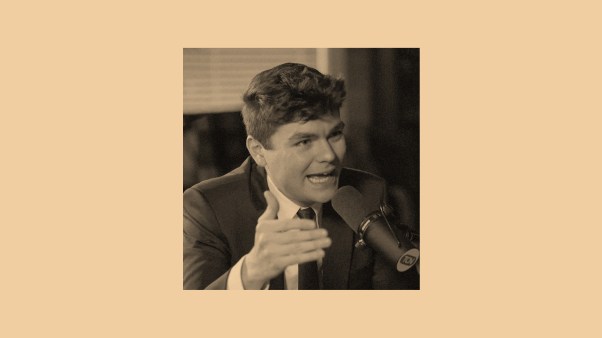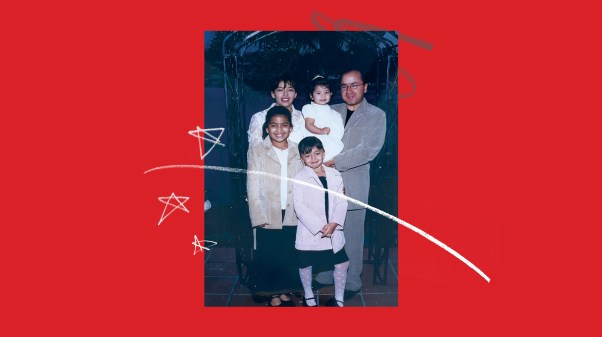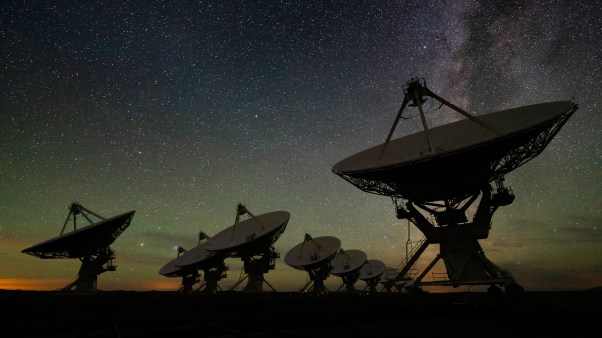Though he’s been leading worship for nearly twenty years now, Michael W. Smith wrestles with the concept of worship like any other Christian. Over the years, Smitty’s personal growth in the area of worship has extended far beyond the boundaries of his church. Can you imagine how a pear orchard, ketchup, or simply being silent can have a part in pleasing God with our worship to Him? Michael talked with us about personal worship in all areas of his life. Put yourself in a chair across the table from him and enjoy his words and experiences in the interview below.
You’ve been leading worship for about twenty years now. Do you think there’s a new hunger for God today? What have you seen?
M: I think there’s a passion for God like never before. The bad is getting worse and the good is getting better. In terms of worship, there’s just a real passion. I think that’s why musical worship is popular. It’s not just the songs. It’s expressing what people want to say. Ultimately, I think there’s a movement of God, and it’s like a wave sweeping across the country.
For the last two-and-a-half years while doing summer festivals, I’ve seen young kids, 8-, 9-, 10-years-old, raising their hands, weeping and crying and praising God. I didn’t see that ten years ago. So I believe there’s something happening. I believe we’re just scratching the surface, too. It’s an exciting time.
What is the church’s part in continuing the movement of the Holy Spirit in worship?
M: I think worship is a lifestyle, first of all. I think music is just a small part of it. Although, it’s something we can do corporately, which I think is powerful. Just look at the Old Testament. They didn’t go out with the army first. They sent the musicians out. And many, many wars were won because the music confused the enemy, although we were outnumbered. So I think that’s critical. We’ve got to remember music is a big part of it.
But I think as churches — and I’ll go off the deep end here — and say we’ve got to reach out to our communities. We’ve got to get involved in taking care of the poor. I think if the church did what they were supposed to do we wouldn’t have anyone sleeping on the streets. It’s hard work. It’s hard to figure all that out. But I think that’s an act of worship. We’ve got to get involved and reach out to the communities, be more evangelical, and bring people into the kingdom. That’s what it’s all about.
What have you seen as far as the leading of corporate worship in the church?
M: In terms of worship, I think we ought to have the right people leading. Not everyone can lead worship. You don’t learn how to lead worship, in my opinion. I think you’re gifted. You’re anointed to lead and then you learn.
I think one of my greatest gifts is leading worship. I’ve been doing it for a long time. I’m better at it today because I’m more sensitive to the Spirit of God than I was twenty years ago. Twenty years ago I’d go, “Hey, let’s sing ‘How Majestic Is Your Name.'” I’d do all these songs, never realizing I need to settle down and hear God.
If you were to give a worship leader one recommendation, what would it be?
M: Don’t be afraid to be quiet. Some of the most powerful times are when we’re quiet. While playing a song the other day in a worship service, something happened. I played for a little bit and then I just laid my hands on the piano. I didn’t move because I felt like we were supposed to be still. I’ll tell you what, God ministered during that quiet time.
I believe people are afraid to be still because we’re used to being stimulated. So people feel uncomfortable in the quiet times. They think, Oh my goodness, it’s quiet. What do we do? Instead we should be going to God asking “What do you want to do? Bring it on.” That ability to be quiet could be a bridge.
I’m still not there yet myself. I’m learning, but I’m getting better at it because I’m learning how to hear God in worship.
How important is the selection of songs for worship time in a service?
M: You need to have good songs.
There are a lot of worship albums out there now. There are a lot of bad worship songs, in my opinion, but there are a lot of good ones, too. But with many of these worship albums, two songs are good and the rest are throwaways. We’ve got to raise the level. We’ve got to have excellence. God deserves the best from us.
Not that I do it right every time either. Take the song “Open the Eyes”. Although we sang it a ton of times, you know what? It still has punch. There’s something about it that’s anointed. “Agnus Dei” is one of the only songs I wrote on the Worship album, but I knew it when I wrote it ten years ago it was important. That song is just anointed. It just is.
Speaking of choosing songs, was it a difficult task to choose a dozen songs out of your favorites to end up on the Worship album?
M: It wasn’t as difficult as I thought it would be. I definitely had twenty on the list and had to narrow it down. I just went with my gut and thought if I had twelve songs to do, what would they be? I wrote them out in two minutes because I knew what they were.
“Breathe,” “Open the Eyes,” “The Heart of Worship,” and “Let It Rain” are on the album. The little trilogy at the end of “Let It Rain” is a really powerful moment on the record. We weren’t going to put “Awesome God” on the album because I’ve been singing it at concerts for years. Everybody’s done it. But when we got to the end of the concert, nobody wanted to go anywhere, and all of a sudden we just ended up doing it. “More Love, More Power,” too, was not supposed to be on the record, but it is.
What’s different when you sit down and write one of those great songs?
M: It’s one of those things that you say, “I can’t put my finger on it.” What is it about a simple little song like “Agnus Dei” that just really works? I can’t try to write one of those songs. Every time I try I fail miserably. Sometimes they come to you in fifteen minutes. Those are the best.
How does the preparation for a project like Worship compare to previous albums you’ve recorded?
M: This was such a different project. Since it was recorded at a concert, we had one shot. You want to prepare, and at the same time you want to stay out of the way. So we had to find that happy balance of not manipulating and not getting too far over to the other extreme of no preparation at all. So I told those involved, “Here’s what I think the flow is, but I might take a left turn.”
Tell us about the time before and after the concert.
M: Even though we were all celebrities to a certain extent, we all looked at each other as family. I think there was a great sense of needing each other. How often does that happen — that everybody would lay down their egos, come with humility, and be part of a support team? It spoke volumes to me. It was really good.
The day was good. Our prayer time before the event was great. But as soon as it was over we were just worn out. We experienced God in a new way. We all just sat and looked at each other. Nobody knew what to say. Then somebody said, “Oh my gosh, I needed this.” And everybody started sharing how much we needed each other — “Why don’t we do this more often?”
So, it’s my goal at some point to get together again. I don’t know how I’ll do it. But I’m a mentor. I’m a father figure. So it’s a goal of mine to try to pull all these artists together again.
What’s something related to worship leading that you’d like to see change?
M: I’ve always wanted to go to church and sing one song, then for the rest of our worship time, just go and love on each other. I’d like to literally play a tape and have each person find someone they don’t know and just converse for twenty minutes to get to know each other. That’s worship. Who says it’s not worship? I’m ready to shake it up.
I’ve found out now, after being part of starting the church I attend and being a regular worship leader at least a couple times a month, that I’m going to search. I’m searching to find the answer to the question of “What do we do next?” So it’s a challenge.
Who are worship leaders you listen to?
M: I pay more attention to specific songs. I probably learned most about worship in my days when I went to Belmont Church on Music Row. I led worship there for years. I learned a lot from Don Finto, my pastor back then. He still mentors me.
I don’t know of anyone I can just sit here and pick out. There are very few albums I sit and listen to and worship. Sometimes it’s a little too much hype for me, kind of a cheerleading thing. And that’s not really what I do. I try to find songs that speak volumes, like when I found “Above All,” an unbelievable song. That will work every time.
Have you talked with people over the years that have never experienced worship before?
M: I think once they come and something really special happens, kind of like what happened on this record, they’re in. They want to come back. “I experienced God this morning.” You never know whom you have in your congregation. We have a lot of visitors almost every Sunday coming and checking it out. They’ve heard about it. So you just never know what kind of climate people lived in. You don’t know what kind of church life people have been in for years, so I try to be sensitive to that.
What’s something you’d like improve?
M: I probably need to talk a little more while leading corporate worship. I don’t talk much because of the nature of it. I think one of my biggest weaknesses in leading worship is that I don’t share. Every once in a while it’s good to share together, to instruct people. Sometimes you’ve got to instruct people on how to let go. But because of the nature of what I do for a living, I’m trying to be invisible the whole time.
I have this false sense that every time I talk I’m drawing attention to myself. The fact is I need to talk, and I need to instruct more. I’m trying to get better at that.
Can you tell me about the time in your life when you first began to grasp the importance of worship?
M: I think I experienced it to a certain extent as a kid. I really experienced it at Belmont twenty-one years ago. I’ll never forget the first time I attended that church. It was unbelievable. It was more than just singing songs. It was the first time that I kind of jumped in and I found myself washed. I really felt like I was worshiping in spirit and truth. I’ll never forget it. I felt like I can do this every day for the rest of my life. It was a pretty big experience.
That’s when I knew that worship was part of my destiny. Don Finto told me, “You’re a worship leader.” And I told him, “I know.” It’s the weirdest thing. So he truly mentored me.
Can you give me a few words that describe worship to you? How would you define it?
M: Being thankful. Being in awe. Dying to self. Worship, to me, is forgetting about who you are, forgetting about your agenda, and being prostrate before God and saying “I’m in awe of you, and thank you for what you’ve done in my life.” That “thank you” sums it up. That’s worship. Also worship is reaching out to your fellow man. Worship is loving the Lord your God with all your heart, soul, mind, and strength. That’s why churches have to reach out to our communities. We’ve got to reach out beyond the walls.
“Purified” is a song you co-wrote with your wife. How has worship become part of your marriage?
M: I just think it’s from what we do every day. We live and breathe. We experience life. We get our kids ready for school. We go on dates. We never fail to communicate. I never let the sun go down on my anger.
If we get in an argument, I can’t go to bed. Even if it’s not my fault I say, “I confess. It’s my fault.” Just keep it clean. Keep the communication lines open. If there’s one thing that I’ve done right with my marriage and my kids, I’ve communicated. I believe that lifestyle is worship to God.
How do you see worship in other areas of your life?
M: Do it unto the Lord in everything you do — your job, your friends, the guy at the Quick Stop, the guy at the little market you go to, whatever and wherever. It’s the way you treat people. All of that is worship to me. Experiencing God’s creation.
This is really strange, and you’re going to think I’m really crazy. But this happened two years ago in the spring. We have these trees in Tennessee called Bradford Pears. They grow a big, beautiful, white blossom. I was just cruising down the road and wasn’t really paying attention. But when I stopped, right beside my car there was this huge orchard. I sat there and cried for five minutes. I had a “God” experience. I sat there and thought, “that’s unbelievable.” I sat there and cried. It was a holy moment for me.
Can you give an example to help us better understand what a lifestyle of worship is like?
M: I feel like my worship is very often invested in my kids. The other day we went to Disney World with my kids. We stopped at a Mexican restaurant. We all sat at the table and started eating.
I looked over at my daughter and she didn’t have any food. I remembered then that she didn’t like Mexican food too much. I said, “I bet you wanted a hamburger.” She just said, “Whatever. I’ll get it later.”
Well, I just got up and ran. It took about three minutes to run over to this place I saw earlier. I got a cheeseburger and fries, and I came back and handed it to her. She smiled and said, “Dad, you didn’t have to do that.” I told her, “I wanted to.”
Then she got up and started walking. I forgot to get her ketchup! She loves ketchup. I caught up with her and then ran back across the park. I filled all these little ketchup containers and I went back to her. She was so surprised and thankful.
Hey, I don’t score every time like that. But you know what? I had forgotten who I was because I wanted to serve my daughter. It was a joy. It was a complete joy to go get her that hamburger and run back and get ketchup.
That was an act of worship to me because God has given me these incredible kids to serve. Believe me, actions speak louder than words. I didn’t do it to get attention. I tried to do it incognito and not for a show. I just didn’t want her to go by herself. I wanted to do it for her. That’s just one example of what I feel worship is.








